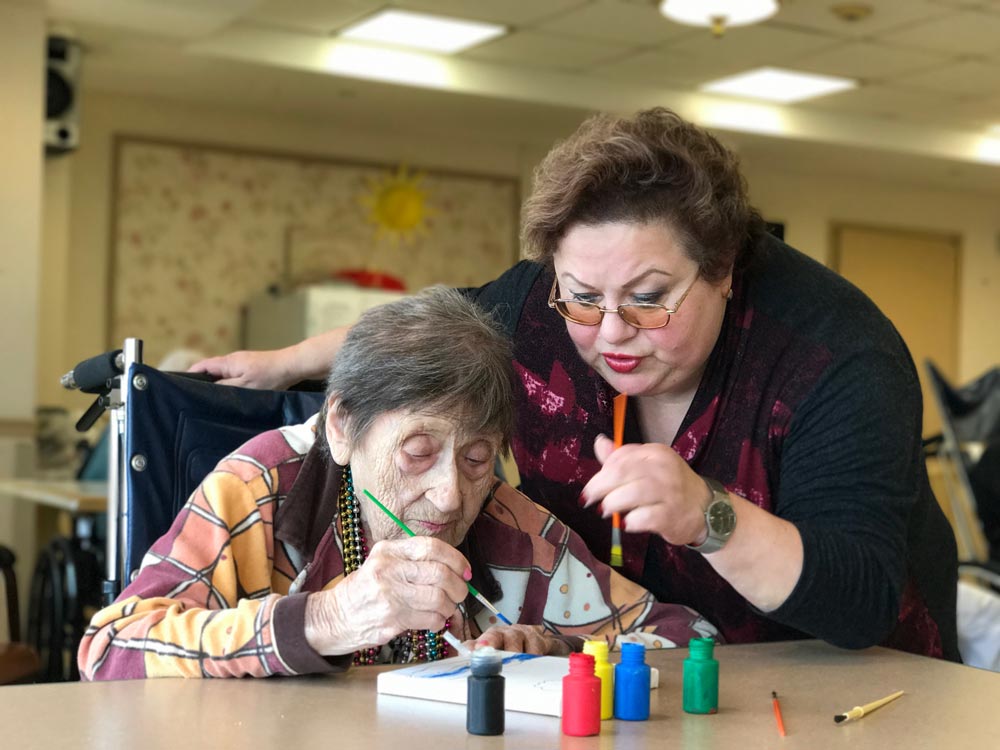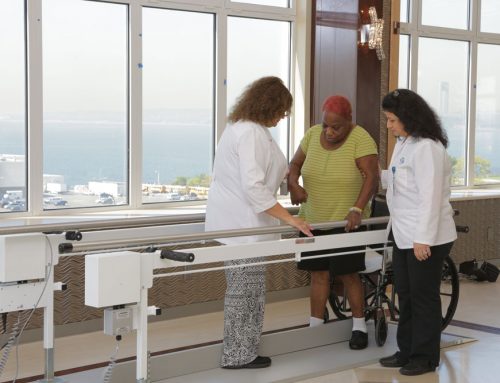There’s always been a lot of talk of dementia long-term care facilities in the news, and rightfully so. These critical facilities play a very important role in the lives of individuals living with dementia, particularly when their families are no longer able to successfully care for their loved one on their own.
When it comes to maintaining a reasonable quality of life, long-term care facilities truly hold the most promise for dementia patients.
But even so, you may still have lingering questions about what these facilities offer and if they are even willing to accept all dementia patients. This guide will help answer those questions while also pointing you in the direction of a viable solution for dementia care.

Question #1: Do nursing homes provide dementia long-term care?
As you might expect, the answer here is not uniform across the board. Some nursing homes are equipped to work with dementia patients, while others specialize in other types of personalized care. But usually, when a given nursing home accepts dementia patients, they do so because they possess a team of experts.
Certain nursing homes may also differentiate acceptance based upon the progression of a patient’s condition as it relates to dementia. For example, an adult day care program may only be able to accept a dementia patient if their condition’s progression only moderately impacts their cognitive ability.
However, a memory care unit at a dementia long-term care facility is more able to address a late-stage patient’s needs.
Question #2: Do dementia patients need 24-hour care?
Here again, the answer differs depending on the situation. When the first symptoms of dementia begin to appear, most patients are still able to live a fairly independent life. This may be with the support of family and friends or caregivers.
However, as the condition progresses and intensifies, many patients begin to need dementia long-term round the clock care. This may be necessary to facilitate basic or complex functions.
In these cases, in-home care is often a first step to supplement a family member’s capabilities to support their loved one’s well-being. Usually, an in-home caregiver is only present for a set number of hours or on certain days to decrease the burden of care for an individual with dementia. Depending on how it is facilitated, this may amount to “24 hour” care.
However, 24-hour care most often takes place in an out-of-home facility, such as a specialized nursing home. These facilities are better structured to meet the needs of patients, especially when their memory and physical capabilities are impacted. Often, appraisal teams from these facilities help determine whether or not 24-hour care is appropriate in your loved one’s situation.
Your solution for dementia long-term care
Individuals living in NYC need not wait another day to find long-term care that is fully professional and compassionate. Brooklyn-based Haym Salomon Home should be your first choice when it comes to finding personalized care for your loved one.
Our team is ready to work with you to make long-term dementia care a reality for your loved one. This includes working with you to make financing care through a payment plan a viable option.
This content comprises informative and educational resources only and can not be considered as a substitute for professional health or medical guidance. Reliance on any information provided in this article is solely at your own risk. If you have any inquiries or apprehensions about your medical condition or health goals, talk with a licensed physician or healthcare provider.






Leave A Comment